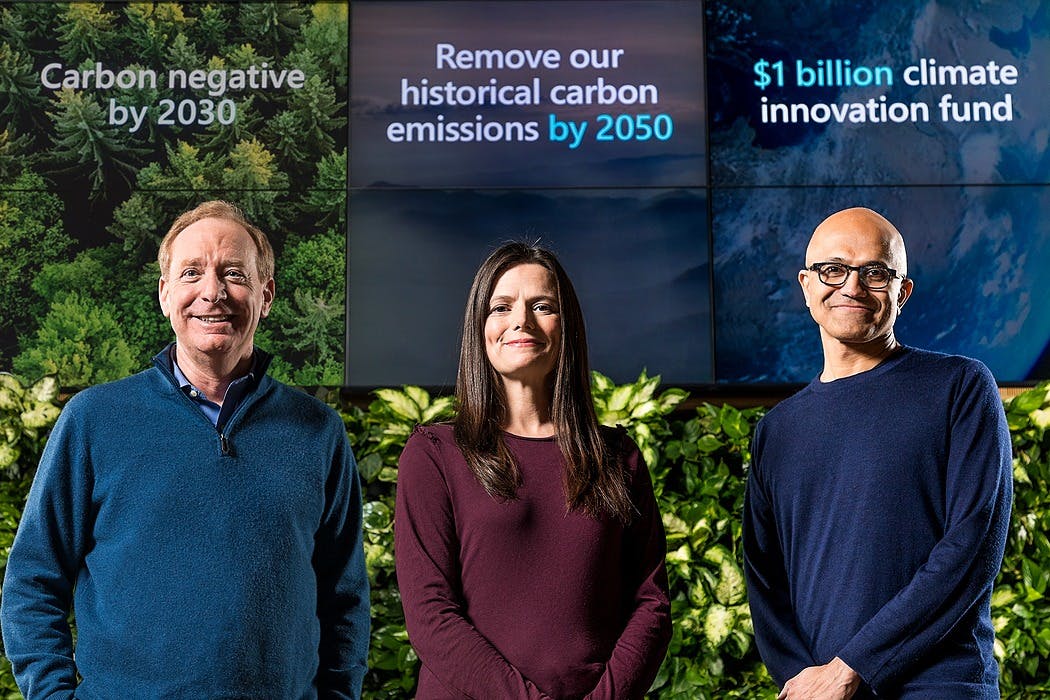The World Economic Forum put out its global risks report for 2020, and it's not looking pretty.
Of course, the threat of climate issues take up the vast majority of the report; see the image below where green boxes = environmental issues:
In response to the climate crisis, big tech companies seem to be stepping up and making big claims.
- Microsoft just committed to becoming carbon negative and climate positive by 2030.
- Amazon just announced it's going to create 1,000,000 new jobs in India with a big focus on the SME sector (small and medium enterprise).
- Salesforce is putting pressure on all of Silicon Valley to invest more in communities and create a company with real purpose.
- BlackRock just put the climate crisis at the center of its investment strategy.
- Google become a trillion-dollar company and is firing employees that try to mobilize social change efforts internally... Oh wait... Google... WTF?
- Towards the end of 2019, former CEO of Unilever, Paul Polman, went on a speaking tour to educate business executives and investors that "the cost of inaction is higher than the cost of action". In his presentation, he builds
a compelling case that investing in environmental and social sustainability
efforts is a net positive for the planet and its inhabitants.
The business case for making businesses more responsible
In the MovingWorlds complete guide to making businesses more responsible, we share research, insights, and examples — for executives and grassroots employees alike — on how to help their companies be more responsible. Research on corporate social responsibility is clear that investing in sustainability and social impact initiatives help create new growth opportunities and also reduces expenses:
- Increases sales by building loyalty with consumers, opening up new markets, and creating higher-margin product lines
- Reduces costs with more trustworthy supply chains, lower employee turnover, and improved governmental relations
- Fosters innovation by attracting more inspired (and inspiring) employees, helps more diverse teams form and collaborate, helps employees find a sense of purpose, and
In the aforementioned presentation from Paul Polman, he argues that creating a circular economy is the biggest business opportunity the world has ever seen.
Why is big tech battling for the social impact spotlight?
The more you dive into the reports and specifics, it's obvious that a few things are happening:
- Companies are competing for talent, and the research shows people want to work at companies they think have a greater purpose. These sustainability and social impact targets help prove their commitment.
- Companies are competing for customers as business models collide. Companies that, ten years ago had no similarities in business models are all of a sudden competing for customers.
- Companies are competing for governmental goodwill. Not only do governments give out big fiscal contracts, but they also can impose regulation that can help or harm business growth and activities.
Considering the climate crisis and the risks it poses to the global economic system, seeing companies invest in sustainability and social impact projects is a positive indicator, even if corporate motivations for doing so are inherently selfish (and many years delayed).
And even though these big tech companies are still far from model citizen (Tesla, Microsoft, Apple are still enabling child labor violations), hopefully their efforts will set a new bar that scaling and emerging startups will build on, innovate on, and improve on (I, for one, have been inspired by the efforts of groups like DocuSign, Slack, Tripadvisor, Box, and Okta who have invested in social impact from very early stages when compared to older companies) — the world needs big tech's innovative spirit more than ever before to solve the issues facing it.


